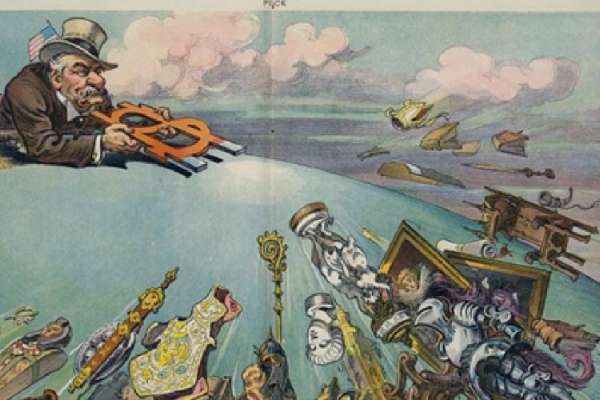Our early experience as CULTIVATE MSS PhD students within the Institute of English Studies is unusual in a twofold way: we are part of a wider project, and we face teleworking due to the COVID-19 crisis in the very first months of our research. Here’s a little insight into this peculiar status of ours.
The two of us are members of a truly diverse team, with people coming from more than five different countries. Apart from our PI and supervisor, we work with four postdoctoral fellows who have variegated backgrounds in history of art, literature, and medieval studies. Under normal circumstances we don’t really feel isolated. Simply due to the way the project works, we are quite far from the somewhat unfair stereotype of the graduate student holed up in their room, in a library, or in an archive, with only the occasional supervision to bring them back into the fold. This group atmosphere is stimulating and rewarding for its generous sharing logic
regarding information on upcoming scholarly events, bibliographical material, or research tools. Furthermore, we benefit from the advice of worldwide experts in manuscript studies that are associated with the project as members of its advisory council. As soon as mid-January, we
had a training week during which we all met up and got to know each other. We participate in team meetings on a regular basis, where we touch base and show mutual support in our common goals and overlapping topics. We also keep in touch thanks to weekly ‘hackathons’ on the Schoenberg Database of Manuscripts, which we constantly contribute to and draw from in parallel to our research.
In light of recent global circumstances however, ideas of isolation have taken on a whole different meaning. Having just started in January, we find ourselves not only having to learn the ways of doing a PhD, but how to do so under lockdown conditions, as many people have had to. Across the university system and beyond, people have been creating makeshift working spaces and testing their technological capabilities with various video-conferencing platforms in order to connect. Scholars have been more helpful than ever with sharing their work and libraries have worked tirelessly to get resources online. As for the CULTIVATE MSS team specifically, despite a few tech-related wobbles, and despite our group being split across the UK, Ireland, France and Switzerland, we continue to have our meetings and our database hackathons. Although we cannot go to the libraries and archives, and research trips have been put on hold for the foreseeable, we have pooled our existing resources so that if someone has a
selection of photos from a particular archive, or access to a specific book, it is shared with whoever needs it. It’s not the traditional way of doing things, but with a bit of creativity, we’ve found an alternative way to work, together and separately.
Natalia Fantetti, PhD student
Pierre-Louis Pinault, PhD student

